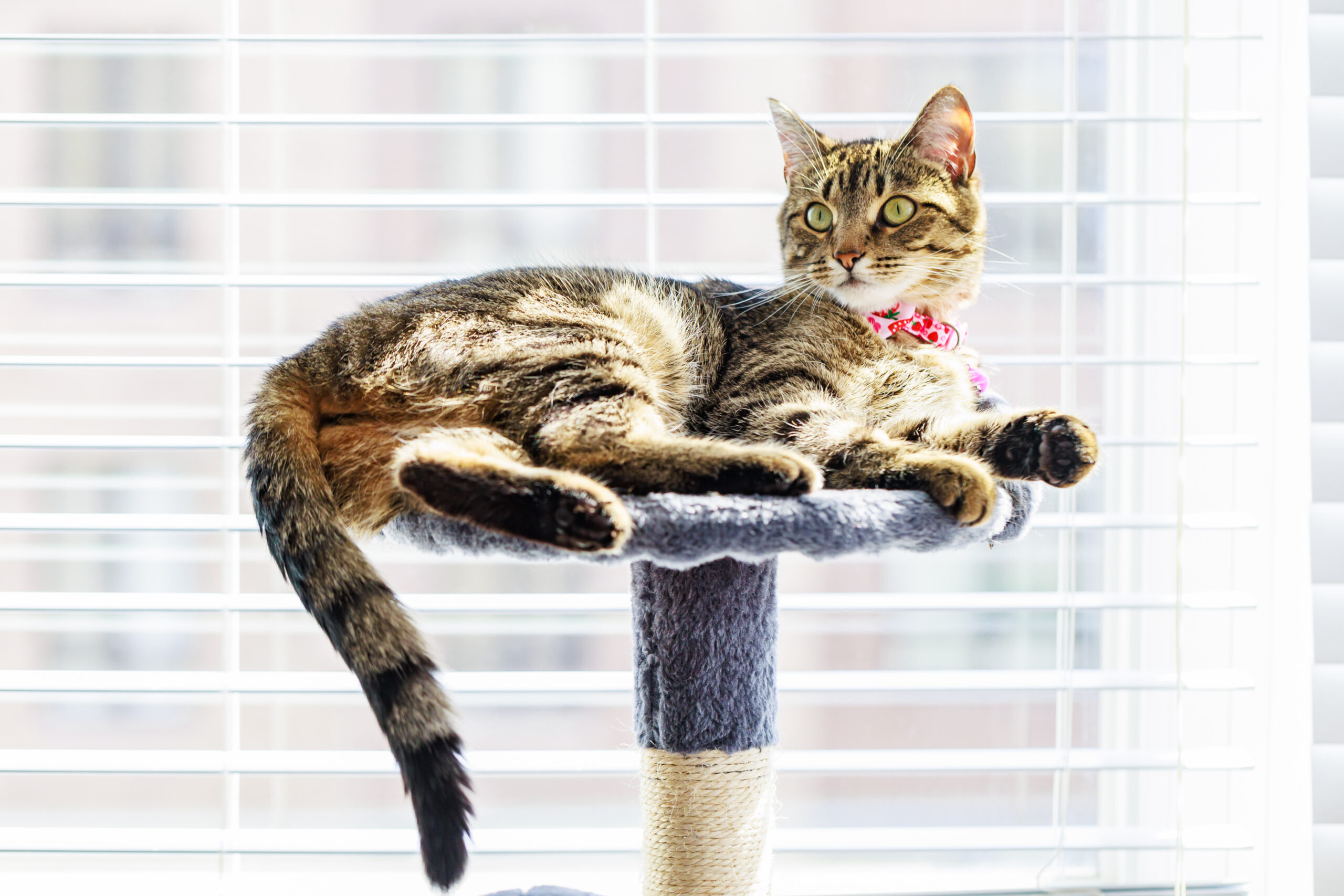Lucy Smith’s 1-year-old cat Millie. Photo by Lauren Gdowski.
GIANNA CASSIN | STAFF REPORTER | gcassin@butler.edu
Between emotional support animals, service animals and foster animals, there are many reasons why students may choose to live with animals on campus. For emotional support animals specifically, it can sometimes be a long process with quite a bit of paperwork to get them approved. Having an animal can greatly improve mental health, relieve stress and even help with everyday activities.
A few weeks ago, Residence Life sent an email to all Apartment Village residents stating that unapproved pets are not allowed within the complex. This email did not mention emotional support animals or service animals. This sparked some to reflect on the importance of having a furry companion.
Lucy Smith, a sophomore race, gender and sexuality studies and anthropology double major, lives with her cat Millie in Fairview House. Smith knew they wanted an emotional support animal on campus before they even came to Butler. Smith loves posting on Millie’s Instagram, @miliethedormkitty, and introducing her to new people.
“Seeing her face when [I] come back from classes is just that motivation to get me through each day,” Smith said. “Getting Millie was a push that every day I’d get up out of bed because I had something else to take care of other than just myself. I couldn’t neglect my cat the way I neglect myself when I get in bad depressive episodes. She’s definitely helped a lot all around with my mental health.”
Although they had previously heard stories of difficulties with Student Disability Services, Smith had no problem with the process. The process to apply for their emotional support animal only took about two months for them, while they had previously thought it would take much longer.
Junior English major Lauren Varvol has fostered three approved cats in Apartment Village since January. Through the IndyHumane foster program, Varvol is provided with all the materials she needs to care for the cats. Having these cats in her room has also helped with Varvol’s mental health.
“I was going through some stuff, and I needed something to keep me going,” Varvol said. “I love cats; I love animals. In an apartment, it’s kind of hard to get a dog, so I opted for cats. I just fell in love with it. I got my first cat in January, and he has now been adopted.”
Rather than adopting, Varvol decided fostering cats was a better decision for her while she is a student in college.
“Adopting is a huge responsibility,” Varvol said. “That’s a lot of time, and I don’t live in Indy permanently. Transporting cats back and forth four and half hours away in Wisconsin, that’s just really hard. Second, financially, I’m not in a stable place. IndyHumane pays for all [their] food. They give me anything I want [for the cats] basically.”
Fairview House resident Becca Mattson, a junior music and youth and community development double major, went through a much longer process to get their service dog, Felicity. After their initial application and phone interview in May of 2021 with Canine Companions, Mattson then went to an in-person interview in March 2022. They were then placed on a waitlist. In December 2022, they were invited to a training session. Each applicant gets matched with a dog based on their strengths. Becca and Felicity were paired up, and Felicity was brought to campus this past February.
Service animals go through very specialized training in order to do what they do. It is important to know the proper etiquette in order to not distract service animals while they are working. Mattson said that people’s etiquette around Felicity has gotten better over time, but there still needs to be more education about it.
“There’s a lot of etiquette issues, and I think a lot of it is just that people don’t know,” Mattson said. “Even people who know she’s not a pet don’t know that it’s distracting to her when you go ‘Felicity!’ because I’m trying to tell her to push a button, and then somebody is excited to see her. She’s still a dog. She’s gonna be like, ‘Who’s trying to see me?’ People make eye contact with her, which is seemingly not a big deal, but when I’m trying to tell her to do things, it can be really difficult.”
Although Mattson has only had Felicit for a couple of months, the two have bonded very deeply. Felicity also has an Instagram account, @felicitys.fans. Mattson’s life has greatly improved since being paired with Felicity and bringing her to Butler.
“I can’t imagine life without her,” Mattson said. “I don’t have to ask [another person] to pick something up for me off the ground; I don’t have to worry about whether or not I’ll be able to push a button or open or close something. I can just ask Felicity to do it. I’ve had pet dogs in the past and had a bond with them, but a dog that goes everywhere with you and is constantly with you is different. That’s my baby girl.”
For whatever reason students choose to have an animal on campus, they can greatly improve quality of life.



